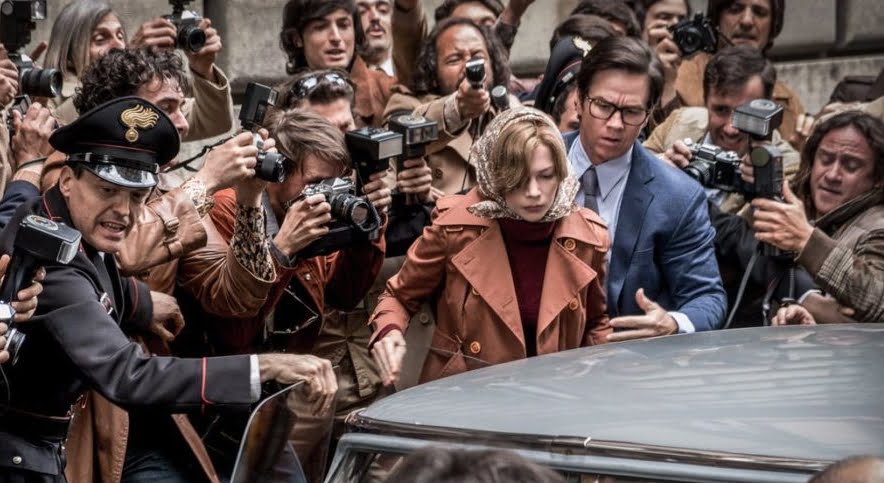A few days after the publication of the graphic novel dedicated to female espionage, ARTE organized a virtual press conference. Alongside authors Chloé Aeberhardt and Aurélie Pollet, a surprise guest: Yola, former Mossad spy. A unique opportunity to ask him questions "live" about his experience in intelligence. And to learn more about the genesis of this fascinating project.
Yola: when reality surpasses fiction
Blonde, curly hair, sporty look. ARTE's press service makes the presentations. This woman is Yola, one of the "heroines" of the investigative book The Spies tell. She attends the conference live from Israel. As he starts, a ginger cat jumps on his lap and passes in front of the screen. She apologizes, smiles, and gently pushes him with the back of her hand. The other participants also smile, fascinated to enter the intimacy of a former spy. The conference begins and questions abound. Yola answers in French.
Discreet recruitment
Eighties, Tel Aviv. Yola is a Cabin Manager for an airline. A friend tells him about a government mission, without mentioning espionage. A patriot at heart, she agrees to meet the Head of the mission. He teaches him to be part of the Mossad, and to form a team for Sudan. "He was looking for sports profiles, practicing diving, and speaking several languages. Which was my case." Yola is seduced by the challenge. But before joining the team, she has to pass a whole series of tests and take on some crazy challenges. Like appearing on the balcony of an apartment in less than ten minutes… Within his airline, only one of the bosses is put in confidence. To her parents and relatives, she announces that she will work for the government. Not to mention the Mossad.
Espionage: a life at two hundred per hour
The mission it integrates is particularly strategic for the State of Israel. It is a question of exfiltrating Falachas Jews from Ethiopia via Sudan, a hostile Islamist state. "At the time, entrusting such a mission to a woman was out of the ordinary. No other intelligence agency had ever dared to do so." But the Mossad is forward-thinking. Officially, Yola is the owner of a hotel in the Sudanese desert. To be credible, she assumes 100% her role as a hotelier. During the day she welcomes customers and manages teams. At night, she devotes herself to her espionage activity. Together with the other members of the mission, they collect the refugees from the camps and transport them to the seaside. There, they board boats to Israel.
Not even afraid!
If Sudan discovered Yola and her team's espionage activity, it was prison. And probably the death penalty. Yet, to the question " Were you afraid?", Yola replies: "There have been unpleasant moments when the heart races. But wewere all very well trained and confident. You can't be an agent if you're afraid." For the Mossad, having a woman on the team is a real asset. At a time when intelligence is almost exclusively male, no one suspects Yola of being an agent. The credibility of its coverage contributes greatly to the success of the mission."Being a woman has openeda lot of doors for me. As an ocidental hotelier, I was very popular and popular in Sudan. "
Back to reality
Three years later… Yola learns that the police are planning to raid the hotel. To check that it does not break certain rules, such as the prohibition on serving alcohol. She spends the night hiding the stocks of bottles, and removing the elements that could compromise her. But following this event, the Mossad made the decision to repatriate the team. "It had become too dangerous. A plane came to pick us up, and we left Sudan overnight." On his return to Israel, the Mossad offered him to continue. But she chooses to return to her old job. "When I returned to the airline after three years of absence, my colleagueswere surprised to see me again. They asked me where I had gone. I never told them anything."
The veil lifts
It was only very recently, forty years later, that Yola was able to begin to speak freely about this experience. Because there is a desire of the Mossad to inform about the mission. And also because relations with Sudan are better. "I have reconnected with the former Ambassador of France in Khartoum. We were friends at the time. And I told him why I had to leave Sudan overnight." Yola was finally able to confess the truth to her parents and friends. "They were very surprised but understood my choice at the time." Sometimes she even gives lectures where she tells her story.
The genesis of the project
In 2010, Chloé Aeberhardt published an article about a "raid" in the Russian illegal services. Among the dozen officers arrested was a twenty-eight-year-old businesswoman, Anna Chapman. An illegal agent playing on her charms, she is nicknamed the "Mata Hari of modern times". Fascinated, Chloe wants to dig into the question: are all spies equally sexy? She reads books on women's espionage. Without much result. She then decides to meet spies to get their testimonies, but encounters many difficulties. Active agents, bound by professional secrecy, refuse to testify. And identifying spies is a challenge, because very few are those who benefit from notoriety. Chloé then formed a network of "alumni" of the DGSE. Through them, she manages to get in touch with retired spies around the world.
A long work of persuasion
But she is not at the end of her troubles. Some are more suspicious than others, and not all want to testify. This is the case of Gabriele Gast, former double agent of STASI, who does not wish to return to a painful past (she will spend nine years in prison at the fall of the Berlin Wall). But Chloe finally manages to convince her. This work of identification and persuasion explains why his efforts take time (five years). On the other hand, for public figures like Jonna Mendez, making contact is much easier. And is done through the publisher of the book Spy Dust, which Jonna wrote with her husband Tony Mendez, a CIA star agent.
From book-investigation to series
His approach led to the publication of a book-investigation, Les espionnes racontent, en 2017. Chloe's wish is to bring suspense, and to tell the life of these spies in the manner of romantic stories. "I was very influenced by John Le Carré, and by shows like The Americans." When she listens to the story of Yola, Gabriele, Jonna or Ludmila, Chloe feels like she is in a movie. And she wants the reader to feel it. Two years after the release of the book, a series in the form of cartoons is directed by Aurélie Pollet. " The series was an amazing experience but quite a challenge. It was necessary to condense into six six-minute episodes very detailed stories," says Aurélie Pollet. The graphic novel allows him to free himself from this time constraint.
The graphic novel
In the series as in the graphic novel, framing and dialogues punctuate the narrative, and allow to slip a touch of humor. For the rhythm, Aurélie Pollet is inspired by the "Fargo" series. A chrome is associated with each story. For that of Yola, it is ochre and blue, which evoke the sea and the desert. The time of the spy story is in color, black and white for today. To draw these women and their universes, Aurélie Pollet works from photos. His imagination does the rest. For Yola, a photo taken at the hotel in Sudan, in which she is seen dancing. "When I saw this photo, what struck me was Yola's spontaneity." A spontaneity that perhaps explains the success of women in espionage.
To be found
The investigative book Les espionnes racontent – Co-editions Steinkis / ARTE Editions. The six episodes of the series Les espionnes racontent (6 minutes each) on ARTE. TV
Review of the Spies tell here.







































